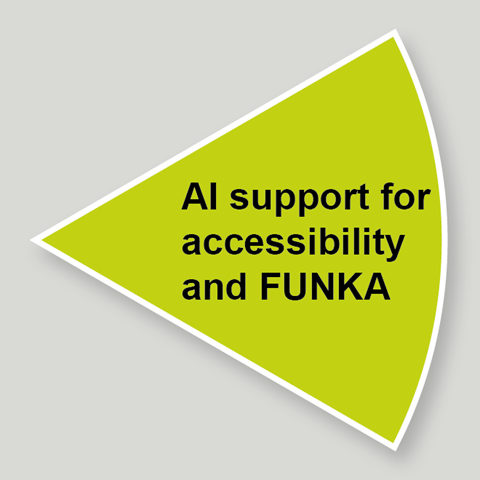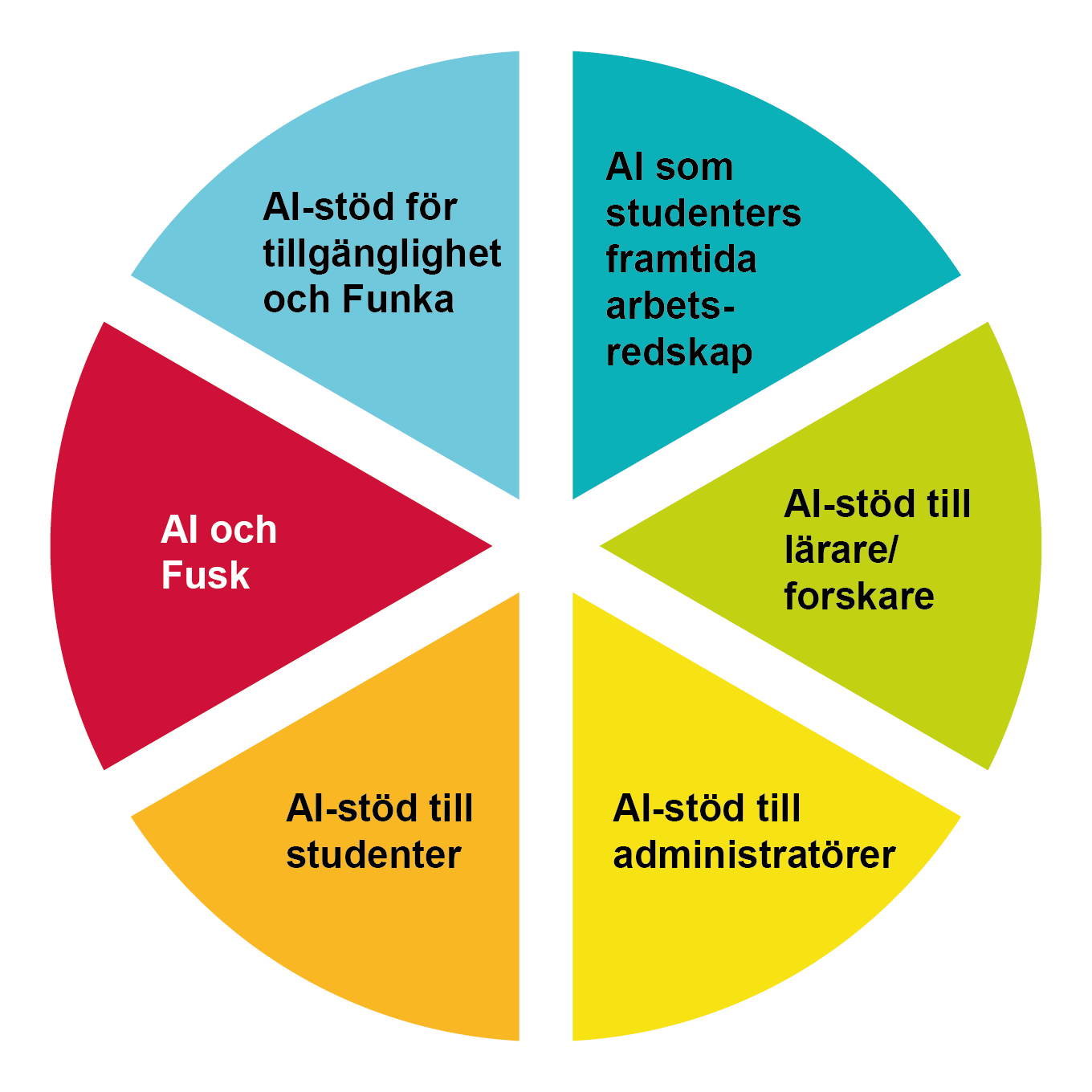AI support for accessibility and Funka
Last changed: 21 February 2025

AI can play an important role in improving accessibility on the web and also support students with disabilities in several ways.
For example:
- Shorten the lead time it takes for you as a teacher to produce customised course material.
- Facilitate the work of subtitling recorded material, so that the requirements according to the EU accessibility directive. Subtitling is especially important for people with hearing loss.
- Translate text, speech and images into different languages and formats, which can facilitate communication between teachers and students with different linguistic and cultural backgrounds.
- Facilitate students with various types of disabilities, for example by:
- Automatic image description: AI can be used to automatically generate descriptions of images on web pages.
- Text translation, capitalisation and synthetic speech: AI can be used to translate text on web pages into different languages, generate synthetic speech and more. NB. Text translated with AI tools must always be revised before it is published or disseminated.
- Act as a "virtual study companion" ("or learning companion") who helps you as a student with the structure and planning of your studies. The AI support can act as a discussion partner and can help you cope with your studies.
- Explain difficult texts: If you have difficulty understanding a text, AI can help.
- Act as a virtual note-taking support if you, as a student, find it difficult to take notes while listening to a lecture. AI can both transcribe audio recordings in their entirety and summarise the audio recording/recording in shorter points.
- Summarise many texts quickly: It is possible to upload many texts and ask AI to summarise them.
The DOS Act, the Swedish law based on the EU's accessibility directive, entered into force on 1 January 2019. The DOS Act requires digital content to be:
- possible to perceive, regardless of any impairment of, for example, vision or hearing
- manageable, that is, possible to interact with
- understandable and
- robust, i.e. able to be used with a wide range of different user programs, such as browsers or technical aids.
Finally, AI can support work with accessibility and provide support to students with disabilities. But at the same time, it is very important to be aware of risks and limitations and how you can use AI in an ethical, responsible and inclusive way.
When you test new AI services, do not forget:
- Currently you often need to create private accounts to explore many of the new AI services on the market (and several cost money).
- Critical thinking: Be aware that AI-generated material may contain inaccuracies, distortions, bias, and copyrighted material.
- Security awareness: Pay attention to security aspects when testing AI systems.
- Privacy protection: Be careful about what information you share with AI to prevent the spread of sensitive and proprietary information.
 |
Go back to AI start page |
More information
Articles
- Lagen om tillgänglighet till digital offentlig service
DOS-lagen, 2019 - Studera med funktionsnedsättning
Studentwebben (slu.se) - Vad innebär AI-verktyg för utbildning?
Umeå universitet, juni 2023